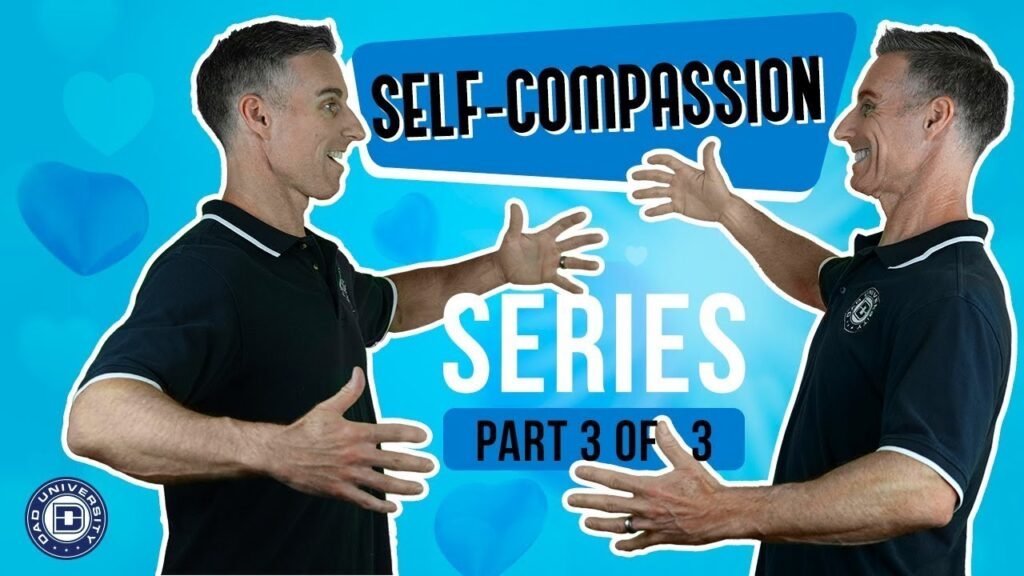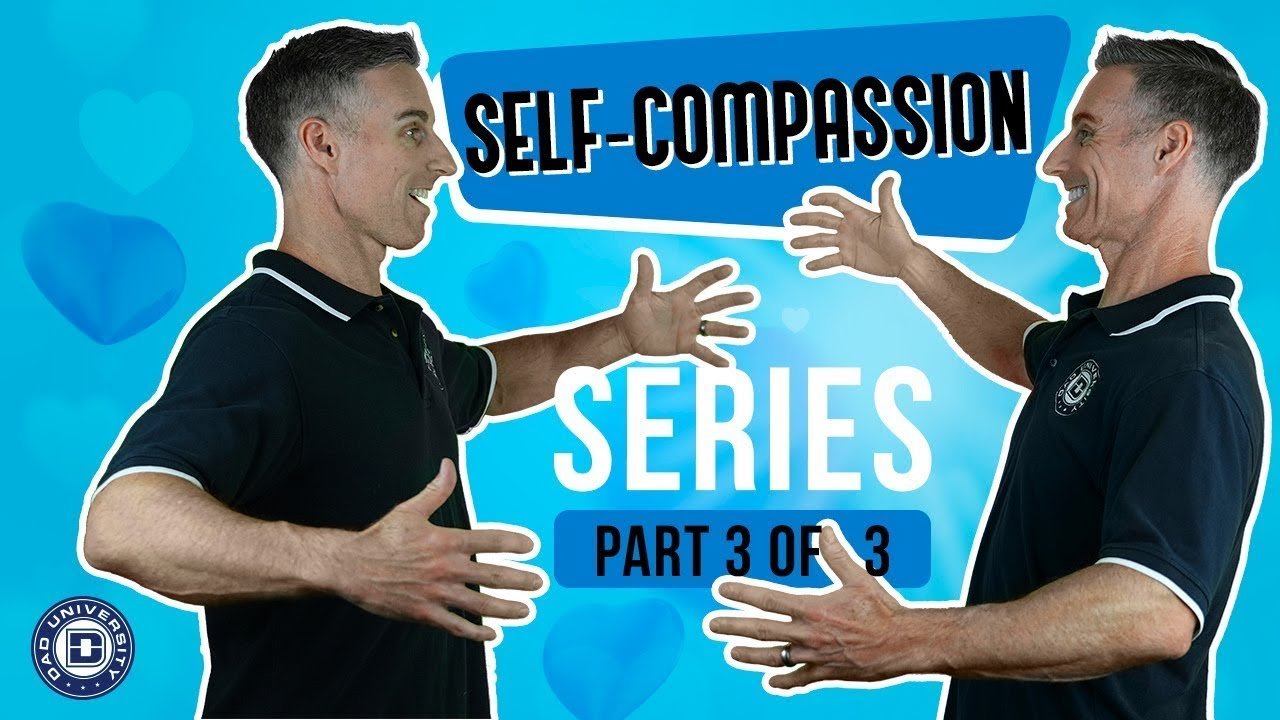Hey there! In this video, Jason from Dad University shares some quick and easy self-compassion exercises specifically for fathers. This is part three of a self-compassion series, so if you’re not familiar with self-compassion, it’s recommended to watch parts one and two first. Jason emphasizes the importance of self-compassion for fathers and highlights the benefits, which include improved mood, overall well-being, and better relationships. While there are many self-compassion exercises available, Jason narrows it down to five quick exercises that dads can practice on their own. These exercises include acknowledging your own suffering, recognizing that you are not alone, using the “friend test” to offer yourself compassion, being kind and loving to yourself, and picturing yourself as a child to cultivate self-compassion. So, if you’re a dad looking to enhance your self-compassion, give these exercises a try and let Jason know how it goes in the comment section!

1. Acknowledge your suffering
The first step in practicing self-compassion as a dad is to acknowledge your own suffering. As men, we often have a hard time admitting when we’re struggling. But the truth is, parenting can be tough and it’s okay to admit that you’re finding it difficult. Take a moment to reflect on how you’re feeling and say it out loud, whether it’s saying to yourself, “I’m really struggling right now with being a dad,” or “This parenting thing is difficult for me.” Just the act of acknowledging your suffering is powerful and it’s the first step towards having more self-compassion.
2. Recognize that you are not alone in your suffering
When you’re going through a tough time as a dad, it can feel like you’re the only one experiencing these struggles. You might look at other fathers and think they have everything together, but the reality is that everyone has their own set of challenges. Remember that suffering is part of the human condition and you are not alone in your struggles. When you realize that what you’re going through is normal and that many other dads are experiencing the same thing, it can help ease your anxiety, stress, and other negative feelings. You are not alone in this journey.
3. The friend test
Imagine a close friend coming to you with the same struggles you’re facing as a dad. How would you respond to them? Oftentimes, we’re better at providing compassion and loving responses to others than we are to ourselves. Use the friend test as a technique to be more compassionate towards yourself. Whenever you’re feeling down or going through a difficult time, ask yourself, “What would I do if my close friend told me they were feeling this way?” Then, treat yourself with the same level of compassion and kindness you would offer to your friend. By doing this, you can cultivate self-compassion and improve your overall well-being.
4. Be kind and loving to yourself
Once you’ve acknowledged your suffering, it’s important to take action and be kind and loving towards yourself. Practice self-compassion by using kind words and affirmations. Say things like, “I am here for you,” “I care about you,” “I forgive you,” or even “I love you.” While it may initially feel strange to say these words to yourself, the power of self-talk should not be underestimated. The words we say to ourselves have an impact on our mood and well-being. Additionally, physical touch can be healing, so try placing your hand over your heart, as you would with a friend, to provide comfort and support. Remember, instead of judgment and criticism, be kind and loving to yourself.
5. Picture yourself as a child
Another effective exercise for practicing self-compassion is to picture yourself as a child. Imagine your younger self going through the same struggles and negative feelings that you’re currently experiencing. Ask yourself, if a child told you about these feelings, would you say anything negative or discouraging to them? Most likely, you would respond with love, kindness, and encouragement. Treat yourself with the same love and kindness you would offer to that child. This exercise can help you cultivate self-compassion and shift your perspective towards a more understanding and nurturing mindset.
6. Combine the exercises for a longer practice
While each of these self-compassion exercises can be done individually, they can also be combined for a longer practice. Consider setting aside dedicated time each day to go through these exercises as a self-care routine. Start by acknowledging your suffering, then recognize that you are not alone in your struggles. Next, use the friend test to provide compassion to yourself, followed by being kind and loving towards yourself through affirmations and physical touch. Finally, picture yourself as a child and treat yourself with the same love and kindness you would offer to that child. Combining these exercises can create a powerful self-compassion practice that can greatly benefit your well-being as a dad.
7. Additional self-compassion exercises and meditations
In addition to the exercises mentioned here, there are numerous other self-compassion exercises and meditations available. Two leading experts in the field, Dr. Kristin Neff and Dr. Chris Germer, have created workshops and authored books on self-compassion. Their respective websites offer a wealth of resources and guided meditations that you can explore. These exercises and meditations provide additional tools and techniques to deepen your practice of self-compassion and enhance your overall well-being.
8. The benefits of self-compassion
Practicing self-compassion as a dad has numerous benefits for your mental and emotional well-being. Research has shown that those who are more compassionate towards themselves tend to be happier, more motivated, have higher life satisfaction, better physical health, less anxiety, less depression, more confidence, better relationships, and are more resilient. By cultivating self-compassion, you are effectively creating a positive and nurturing environment within yourself, which can have a ripple effect on all aspects of your life as a dad.
9. Importance of self-compassion as a dad
Self-compassion is especially important for dads because we often put a lot of pressure on ourselves to be perfect and meet societal expectations of what it means to be a father. This pressure can lead to feelings of inadequacy, overwhelm, and burnout. By practicing self-compassion, you can counteract these negative feelings and cultivate a mindset of acceptance and understanding. Self-compassion allows you to be gentle with yourself during the ups and downs of fatherhood, and it empowers you to learn and grow from your experiences rather than be consumed by self-criticism. Ultimately, self-compassion allows you to show up as the best version of yourself for your children and create a more loving and supportive environment within your family.
Conclusion
In conclusion, practicing self-compassion as a dad is a powerful way to improve your overall well-being and enhance your experience of fatherhood. By acknowledging your suffering, recognizing that you are not alone, using the friend test, being kind and loving to yourself, picturing yourself as a child, and combining these exercises into a longer practice, you can cultivate self-compassion. Additionally, exploring additional self-compassion exercises and meditations can deepen your practice. The benefits of self-compassion are vast, and as a dad, it is crucial to prioritize your own well-being in order to show up as the best version of yourself for your children. Remember, you are not alone in this journey, and by practicing self-compassion, you are nurturing a loving and supportive environment within yourself and within your family.

